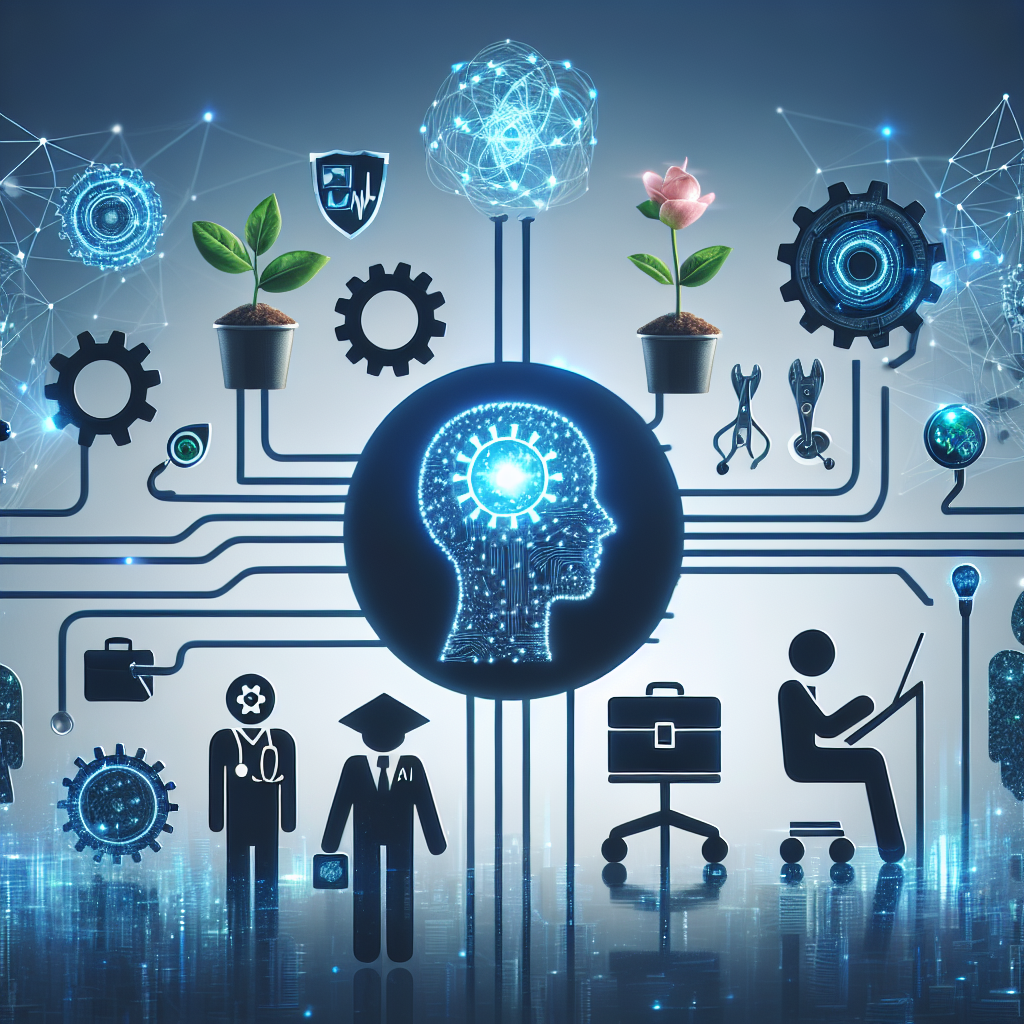The Future of Work: How AGI Will Transform Industries
Artificial General Intelligence (AGI) is a term that refers to AI systems that have the ability to perform any intellectual task that a human can. While current AI systems are capable of performing specific tasks, such as playing chess or recognizing speech, AGI has the potential to revolutionize industries and transform the way we work.
In this article, we will explore how AGI will impact various industries and what the future of work may look like as a result.
AGI in Healthcare
One of the industries that stands to benefit the most from AGI is healthcare. AGI has the potential to revolutionize medical diagnoses and treatment plans by analyzing vast amounts of data and identifying patterns that human doctors may overlook. AGI-powered systems could help doctors make more accurate diagnoses, recommend personalized treatment plans, and even predict patient outcomes.
Additionally, AGI could streamline administrative tasks in healthcare, such as scheduling appointments, managing patient records, and processing insurance claims. This could free up healthcare professionals to focus more on patient care and improve overall efficiency in the industry.
AGI in Finance
The finance industry is another sector that will be transformed by AGI. AGI-powered systems could help financial institutions make more informed investment decisions, detect fraudulent activities, and optimize trading strategies. These systems could analyze market trends, economic indicators, and news articles to predict stock prices and identify potential risks.
AGI could also automate routine tasks in finance, such as data entry, compliance monitoring, and risk assessment. This could improve accuracy, reduce human error, and increase the speed of financial transactions.
AGI in Manufacturing
In the manufacturing industry, AGI has the potential to revolutionize production processes and supply chain management. AGI-powered systems could optimize manufacturing workflows, predict equipment failures, and identify opportunities for cost savings. These systems could also improve quality control and reduce waste by analyzing production data in real-time.
Additionally, AGI could enable autonomous robots to perform complex tasks on the factory floor, such as assembling products, inspecting components, and transporting materials. This could increase efficiency, reduce labor costs, and improve overall productivity in the manufacturing industry.
AGI in Transportation
The transportation industry is another sector that will be transformed by AGI. AGI-powered systems could improve traffic management, optimize routes for delivery vehicles, and enhance the safety of autonomous vehicles. These systems could analyze real-time traffic data, weather conditions, and road closures to provide drivers with the most efficient and safe routes.
Additionally, AGI could enable autonomous vehicles to communicate with each other and coordinate their movements on the road. This could reduce traffic congestion, prevent accidents, and improve the overall efficiency of transportation systems.
AGI in Customer Service
In the customer service industry, AGI has the potential to revolutionize the way businesses interact with their customers. AGI-powered systems could provide personalized recommendations, answer customer inquiries, and resolve complaints in real-time. These systems could analyze customer data, preferences, and behavior to deliver a more tailored and efficient service experience.
Additionally, AGI could automate routine tasks in customer service, such as responding to emails, processing orders, and handling returns. This could free up customer service agents to focus on more complex issues and improve overall customer satisfaction.
The Future of Work
As AGI continues to advance and become more widespread, the future of work will be significantly impacted. While AGI has the potential to automate routine tasks, improve efficiency, and enhance decision-making in various industries, it may also lead to job displacement and changes in the skills required for the workforce.
As AGI-powered systems become more prevalent, workers will need to adapt to new roles that require creativity, critical thinking, and emotional intelligence. Jobs that involve repetitive tasks, such as data entry, assembly line work, and customer service, may be at risk of automation. However, new opportunities will emerge in roles that involve designing, building, and maintaining AGI systems, as well as in industries that require human intuition, empathy, and creativity.
FAQs
Q: Will AGI replace human workers in all industries?
A: While AGI has the potential to automate routine tasks and improve efficiency in various industries, it is unlikely to completely replace human workers. Human workers will still be needed to perform tasks that require creativity, critical thinking, and emotional intelligence.
Q: How will AGI impact job opportunities in the future?
A: AGI-powered systems may lead to job displacement in industries that involve repetitive tasks, such as data entry and customer service. However, new opportunities will emerge in roles that involve designing, building, and maintaining AGI systems, as well as in industries that require human intuition, empathy, and creativity.
Q: How can workers prepare for the future of work with AGI?
A: Workers can prepare for the future of work with AGI by developing skills that are difficult for AI systems to replicate, such as creativity, critical thinking, and emotional intelligence. They can also stay informed about advances in AI technology and seek opportunities to learn new skills and adapt to changing job requirements.
In conclusion, AGI has the potential to transform industries and revolutionize the way we work. While AGI-powered systems may automate routine tasks and improve efficiency, they are unlikely to completely replace human workers. Workers can prepare for the future of work with AGI by developing skills that are difficult for AI systems to replicate and staying informed about advances in AI technology. The future of work with AGI is promising, and it will be essential for workers to adapt to new roles and opportunities as the technology continues to evolve.

